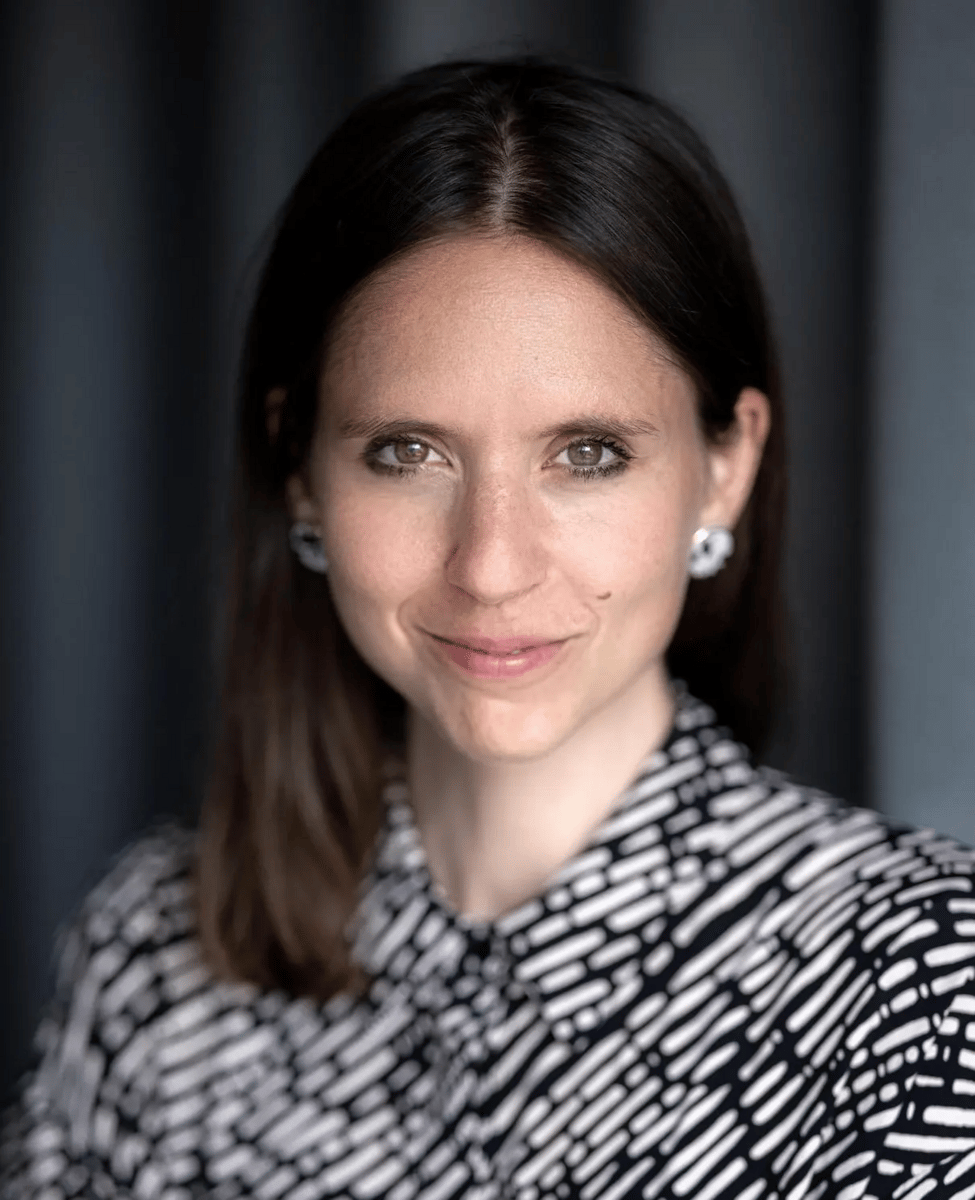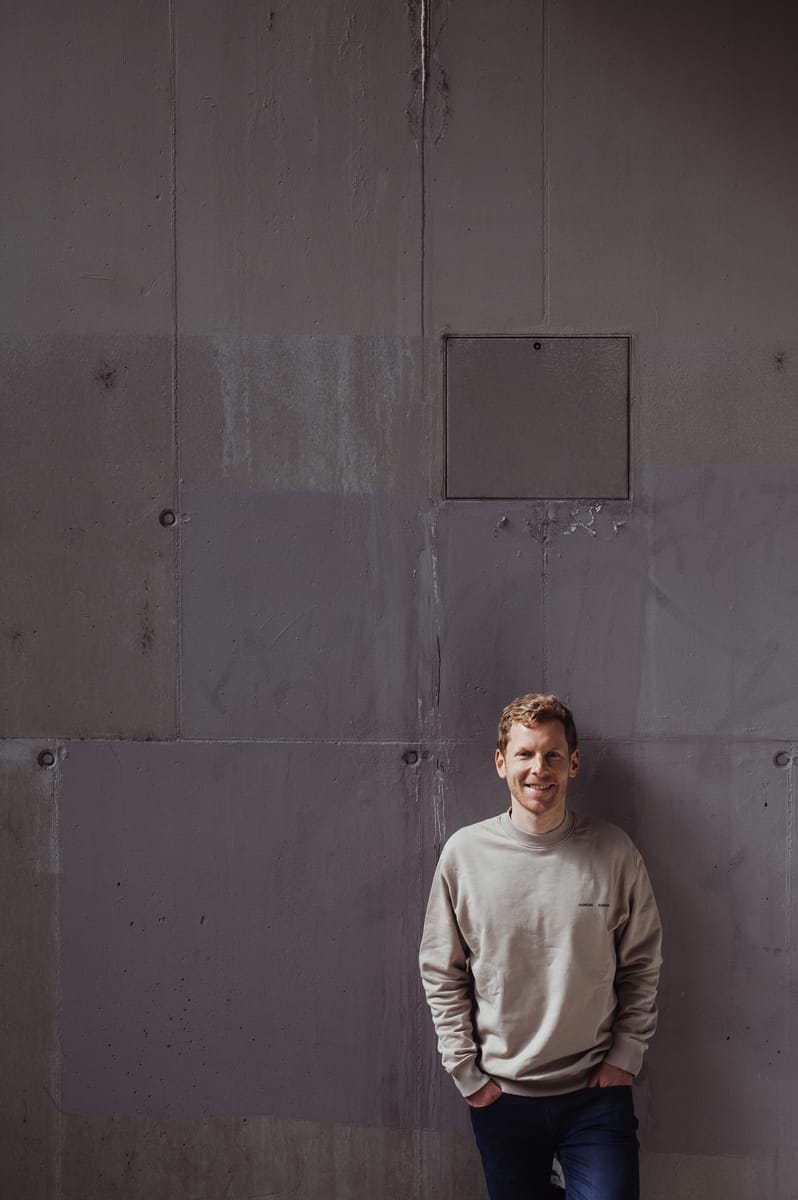Dear hustlers, founders, operators and visionaries,
What happens when a Google veteran tries to build a moonshot company in Europe? Stef Van Grieken’s journey from the Bay Area to founding Cradle is anything but ordinary, and everything early-stage founders need to hear.
In our conversation, Stef opens up about what it takes to build a global biotech company from the ground up in a fragmented and sometimes risk-averse European landscape. He shares the kind of insight only someone who's been on both sides of the pond can offer: how startup-friendly defaults in the U.S. stack up against Europe's gatekeeping legal frameworks and what it feels like to grind through two years of scientific uncertainty. It’s a story of conviction, deliberate systems design, and how to turn a science-risk startup into a real commercial force. Exclusively for our newsletter subscribers, Stef has shared additional insights below.
In the meantime: Follow the Gradient and stay tuned!
PS: Has this e-mail been forwarded to you? Sign up here.
How to navigate hurdles in Europe with Bay area lessons
What you will get out of this episode
In our conversation, Stef shares:
How to scale your startup globally from day one and avoid the structural traps many European founders fall into.
How to validate a high-risk, high-cost product in an industry where customers are deeply skeptical.
Why most European deep tech startups stall early and how to navigate funding, hiring, and university spinouts differently.
How to hire and retain world-class machine learning talent in a bureaucratic environment with visa barriers and systemic friction.
and much more!
Our main take away’s
Set up globally from the beginning to avoid compounding legal debt:
Stef and his team spent €70k up front to build a structurally sound company across jurisdictions. While most European founders delay this until Series A, Stef makes a compelling case for doing it right from day one to avoid fatal issues during critical scaling moments.Validate through action, not pitch decks:
In a high-risk domain like biotech, Stef didn't just talk about value—he paid early customers to run experiments. This allowed Cradle to gather evidence, generate case studies, and prove its platform could outperform legacy methods before even charging a euro.Culture and talent matter more than speed:
Drawing from his time at Google, Stef highlights the importance of hiring A+ talent, staying mission-focused, and building with intentionality. Fast may be flashy, but thoughtful execution and tight team culture are what scale deep tech.Europe’s startup friction is real, but not unbeatable:
Whether it’s opening a bank account, hiring globally, or spinning out university IP, Europe makes things harder. But Stef outlines the hacks, mindsets, and structures founders can use to push through and win on their own terms.Being audacious is not optional, it’s foundational:
Cradle’s mission to “program biology” was always a moonshot. Stef’s advice to founders? Pick something worth your time. Even if you fail, the journey will stretch your capabilities and make you unignorably better for whatever comes next.
How to reach out to Stef
Exclusive from Stef
You’ve operated at Google scale and Cradle’s scrappy early days. What’s one operational process you successfully brought from Google and one that completely failed?
Especially in the early days, Google was great at hiring the best people in the industry. We continued to use the same interview process as Google. Everyone that interviews rates candidates and we have a hiring committee to make a final decision.
To improve collaboration and cohesiveness within our teams, we added an on-site day where we work with someone from a different department to learn about how they would fit into the team. It’s always fun to put on a lab coat.
What I didn't like at Google was the culture of 1:1 meetings. People would have standing thirty minute meetings across the team members. This causes a lot of information not being shared broadly, and makes decision making cumbersome and slow. We try to have as few meetings as possible and involve as many people in those meetings as possible. For example, I only have 1:1's with my team once every 2-4 weeks.
Most startup decks say “we’ll scale by hiring sales & CS.” But for a high-complexity product like Cradle, what did it really take to get from founder-led sales to repeatable processes? Any specific first hires or playbooks?
Our founding team was very technical and we did not have a lot of experience with sales & customer success. We opted to hire one of the best people in the industry to help us with this transition. Sam Partovi built Benchlings commercial team and helped Veeva Systems scale. Selling into life science companies is a long and cumbersome process and having real experts can help you scale a lot faster.
Cradle isn’t just AI – it runs a wet lab in Amsterdam. You've compared it to building your own “self-driving car” to test new models. Why was it non-negotiable to own this stack in-house?
In many Generative AI domains you have a lot of 'free' training data you can get from the internet. For example, text, videos or pictures. And you get pretty decent coverage of the things people care about, for example, we have pictures of most objects humans interact with 99.9% of the time.
In biology we have the inverse problem. We have only sequenced very few organisms and that is only a small subset of what biology could do. We hardly have any experimental readouts for these sequences (i.e. the properties of the molecules) as they cost CHF 400-10k to produce and those in the public domain are typically not very valuable. In order to know if your Generative Model is improving and reliable across different use cases you have to test it in the lab.
Just as you would not get into a self driving car that has never been on the road. The wet lab is expanding our knowledge of what is already available in nature or on the market, so our new sequences outperform the status quo.
What’s the one underrated, almost boring capability that’s become a total superpower for Cradle?
Evaluation is underrated. The first thing you should build as an AI company building your own models is ways of figuring out if you made it better or worse. For us this started with onboarding the tools teams were using before, so we could benchmark against traditional methods. We worked on software infrastructure to allow our team to easily evaluate results. We invested time in defining the proper metrics to evaluate. At the end of the day new ML techniques will come at an increasingly rapid pace. The company that wins is the one that can stay ahead or close to state of art the quickest.
If you were to start Cradle again, what’s one thing you’d do slower — and one thing you’d do 2x faster?
We invested a lot in machine learning models, which is ultimately what drives business value for our customers, but were too late investing in the web application to embed it in scientists' workflows. I guess this is common for companies building GenAI tools - ChatGPT felt like an internal debugging tool up until 6 months ago. You can have the most advanced models in the world, but if it’s not intuitive for the bench scientist, it simply won’t help advance their research. I would invest in the tooling earlier. I don't think there is something I would do a lot slower, I obsess over moving with urgency and I think we have been able to do that in many places in the company.
What is success for you?
For Cradle it would be to enable hundreds of thousands of small teams to build a bio-based product to solve human and planetary health. It will take a bit to get there though.
What books, podcasts, articles inspired you?
Getting into biology, I was inspired by going to Synbiobeta. This is a conference of people building bio-based products. I tasted ice cream that was chemically identical to cow milk, but with the whey protein produced using a fungus instead of a cow. I was in a nightclub looking room with plants that had a gene embedded from deep-sea fish, so they glowed in the dark. This really felt like a future of human engineered biology. As I don’t have a biology background, I read journals like Nature and papers relevant to our domain, something we encourage all our new ML engineers to do. Science is the only real news.
What’s one advice, founders should actually ignore?
Many founders told me not to go with tier 1 investors such as Index Ventures who did our seed round. The reason was that 'if they don't do your A you wont be able to raise'. I think that is optimising for the downside risk. It has been very useful for Cradle to have top tier investors on board. They give you good terms, they have seen what good looks like and give better advice, they care about their reputation so they don't screw you. Many local VCs are just not very good. Think of picking your investor as your spouse. Its like marriage but with more money involved.

Follow the Gradient is a weekly newsletter and podcast by the serial founders Melanie Gabriel & Christian Woese about how to build a business in Europe while staying sane.










